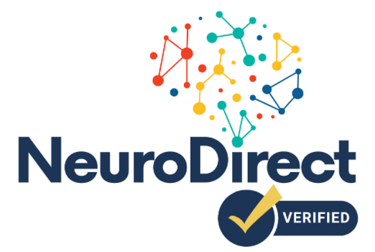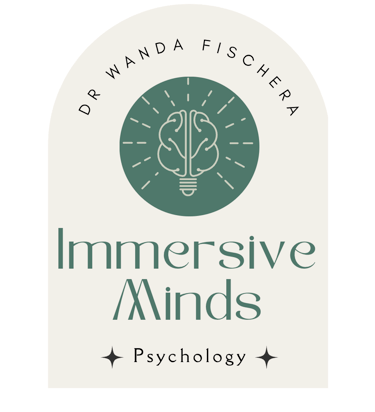Unlocking Emotional Healing for Maladaptive Daydreaming: How Emotion-Focused Therapy Can Help
This post describes the potential benefits of Emotion-Focused Therapy for maladaptive daydreaming.
MALADAPTIVE DAYDREAMING
1/21/20254 min read


Maladaptive Daydreaming (MD) is a complex phenomenon that impacts many people—a vivid inner world that offers comfort and escape, but often at the cost of real-life engagement and emotional well-being. While this coping mechanism can feel necessary, it can also trap individuals in cycles of avoidance, leaving core emotional wounds unaddressed. Emotion-Focused Therapy (EFT) offers a powerful approach to understanding and healing the emotions that fuel MD, helping individuals regain balance and emotional freedom.
Why Emotions Matter in Maladaptive Daydreaming
At its core, MD often serves as an emotional sanctuary. It provides an escape from feelings like loneliness, sadness, anger, or a sense of inadequacy. However, these emotions don’t disappear; instead, they remain unresolved, quietly influencing the person’s life, the content of their daydreams, and reinforcing their reliance on daydreaming. Exploring these emotions in a safe and structured way can lead to profound healing and a reduced need to retreat into fantasy.
Common emotions that may underlie MD include:
Loneliness: MD can become a way to create connections or relationships in one’s imagination when real-world connections feel out of reach.
Anger or Resentment: Daydreaming may suppress unresolved anger toward others, creating a "safe" outlet where conflict doesn’t exist.
Sadness or Grief: Fantasy worlds can provide solace for unprocessed losses or disappointments.
Shame or Inadequacy: In MD, individuals can create idealized versions of themselves, escaping feelings of being "not enough."
Understanding these emotions doesn’t mean blaming oneself for daydreaming—instead, it means uncovering what your inner world is trying to protect you from.
How EFT Can Help Address Maladaptive Daydreaming
Emotion-Focused Therapy (EFT) is a research-backed therapeutic approach that aims to help individuals identify, understand, and transform painful emotions. It leverages imaginative techniques—such as guided visualisation and chair work—to externalize internal conflicts, allowing individuals to process their emotions in a structured and safe environment. This type of therapy leverages the immersive capacity of people who can immersively daydream and can process emotions in real time in therapy.
Here’s how EFT can specifically help individuals with MD:
Connecting With Core Emotions: EFT encourages clients to recognize the emotions driving their daydreaming habits. For example, loneliness may drive the creation of vivid imaginary relationships, while unresolved grief might fuel a need to escape into fantasy worlds where one experiences "dark" daydreams interlaced with themes of grief, abandon and sadness. Or on the contrary, these emotions might not feature in daydreams as one tried to avoid feeling these emotions.
Processing Emotional Wounds: EFT uses techniques like chair work to externalize and explore painful memories or unresolved relational conflicts. By giving voice to these emotions, individuals can begin to heal from the emotional pain that MD has been masking.
Balancing Imagination and Reality: EFT doesn’t reject the richness of imagination but instead helps individuals find ways to use their creativity in ways that enhance, rather than detract from, real-world relationships and goals. Clients learn to value their emotional world while engaging with life more fully.
Fostering Self-Compassion: Many individuals with MD struggle with shame about their daydreaming habits. EFT helps them reframe their daydreaming as a coping mechanism born out of unmet needs, reducing self-judgment and creating space for self-acceptance.
Safety in Emotional Exploration
For those with MD, delving into emotions can feel overwhelming. EFT ensures this process is done safely by working in collaboration with the psychologist. What therapy involves:
Create a Supportive Environment: EFT emphasizes empathy and validation, making it easier to explore emotions without fear of judgment.
Pace the Process: Emotional exploration is done gradually to avoid retraumatization or feelings of being "stuck" in distressing emotions.
Ground the Client: Techniques like grounding exercises and mindfulness are often integrated to help clients stay connected to the present, preventing them from feeling overwhelmed by emotions or needing to retreat back into daydreaming. These are tools that research backs for overcoming maladaptive daydreaming.
What Does the Research Say?
EFT is more and more widely recognised as an evidence-based approach for addressing mental health difficulties, including depression, anxiety, and trauma. Studies have shown that EFT effectively helps individuals process unresolved emotional pain, leading to significant reductions in symptoms and improved emotional regulation.
While specific research on EFT for MD is still emerging, the principles of EFT align closely with the needs of those struggling with MD. A 2018 study by Somer et al. on MD highlighted the role of emotional dysregulation and unresolved trauma in maintaining the behavior, underscoring the need for therapies that address core emotional issues. EFT’s focus on emotional processing makes it an excellent candidate for helping individuals with MD break free from cycles of avoidance and reliance on fantasy.
Why Consider EFT for Maladaptive Daydreaming?
EFT offers a compassionate, structured approach to understanding the emotional roots of MD. By helping individuals process unresolved feelings and unmet needs, EFT not only reduces the reliance on daydreaming but also fosters emotional resilience and real-world engagement. With the support of a trained psychologist, clients can turn their immersive daydreaming ability into a tool for growth, finding balance between their inner world and the reality around them.
If you’re ready to explore the emotions behind your daydreaming and take steps toward healing, consider booking a free introductory call with me to discuss how EFT could be helpful for you. Your inner world is rich and creative—EFT can help you harness that creativity to build a life where both your emotions and real-world connections thrive.
Support
Dr Wanda Fischera is offering personalised online therapy for individuals and groups. Registered with HCPC.
Connect & receive updates on services and free resources
© 2024. All rights reserved. By Dr Wanda Fischera
I respect your privacy and I will not pass on your details to third parties.




